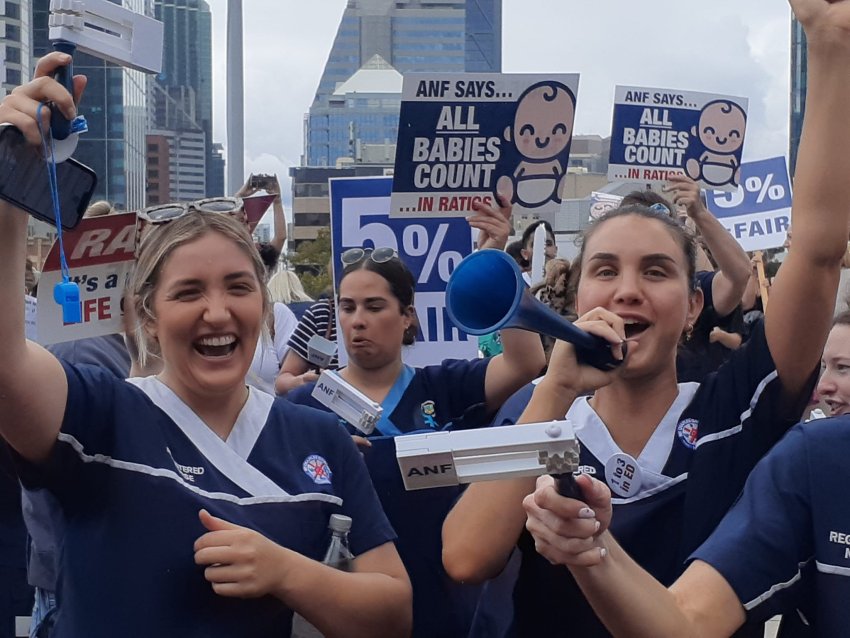
Since the Australia Nursing Federation (ANF) Western Australia organised a state-wide strike on November 25, enterprise bargaining negotiations have come to a grinding halt.
Labor premier Mark McGowan described the union’s industrial action as “criminal” and the Western Australian Industrial Relations Commission (WAIRC) said it would begin proceedings to deregister the union.
McGowan has refused to raise the government’s low 3% pay rise offer along with a one-off $3000 cost-of-living payment. Given that annual inflation is at 7.4%, it amounts to a pay cut.
Janet Reah, ANF WA secretary, praised the thousands of striking nurses and midwives in November. Since then, however, she has joined the government chorus in claiming industrial action puts patients’ health at risk.
She also announced on December 7 that the ANF will abide by WAIRC orders to appeal for the right to take protected strike action. This was done without consulting members.
Meanwhile, union funds earmarked for the enterprise agreement campaign, including paying fines for taking strike action, will be redirected towards radio and television campaigns.
Rather than organise rallies and involve the public in pushing the union’s demands, Reah plans to dress some union employees up in hornet costumes to gate crash MP’s media conferences.
Members have not been consulted in any of these decisions, which amounts to being locked out of our own enterprise agreement campaign.
The challenge facing members now is how to crack this closed-door union open and play an active role in the negotiations with government.
Historically, the executive and council have been “elected unopposed” — without a membership ballot. The fact that there was an election in October was the result of members challenging the status quo: they very nearly won a majority of council positions.
The WAIRC is now investigating members’ allegations that they did not receive ballots in time to vote. It remains to be seen if the election will be re-run next year.
The ANF does not have a delegate structure, such as a delegates’ conference, leaving decision-making to a small and largely unaccountable executive.
Changing the union’s rules to empower a conference would require a decision by the union’s annual general meeting, which is only valid when there is a quorum of 5%. For this big union, it would mean a meeting of 1800 members.
The ANF executive’s lack of interest in a democratic delegate structure was revealed by the venue chosen for its AGM: capacity was just a few hundred people.
A rerun election in 2023 would give members the opportunity to elect an executive committed to changing the union’s rules and making a delegate’s conference a reality.
But a delegate’s conference is only as good as members’ engagement and organisation. There is a lot of work needed to build democratic structures in the union and electing workplace representatives is a first and urgent task.
This would allow members to gain experience in discussing workplace and union matters with colleagues and raising these issues with management and elected union officers.
[Chris Jenkins is a member of the ANF WA and the Socialist Alliance.]